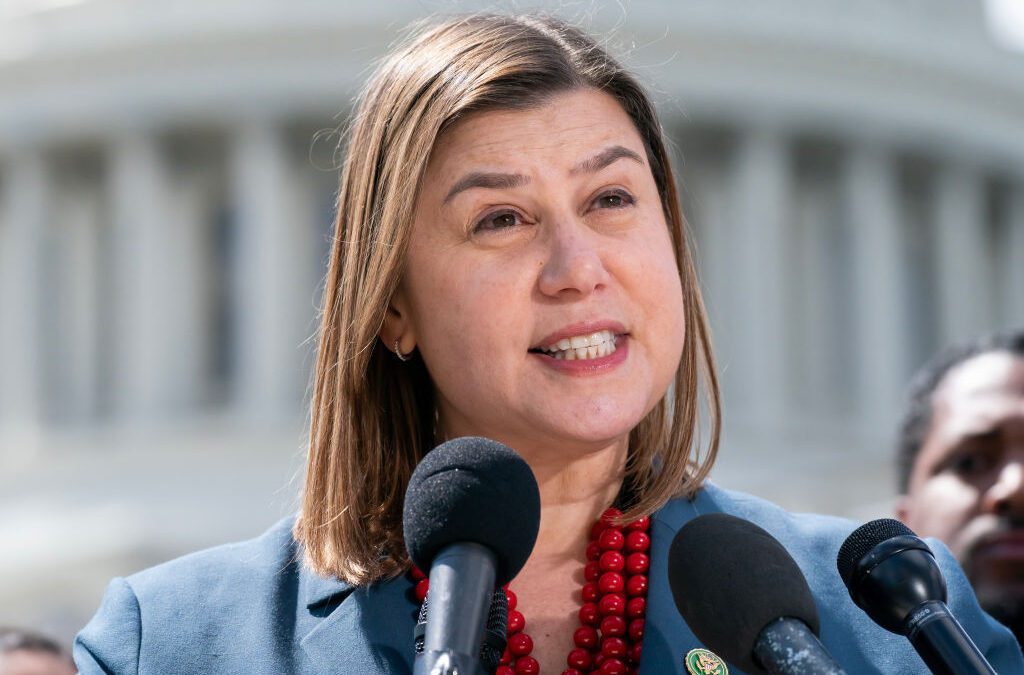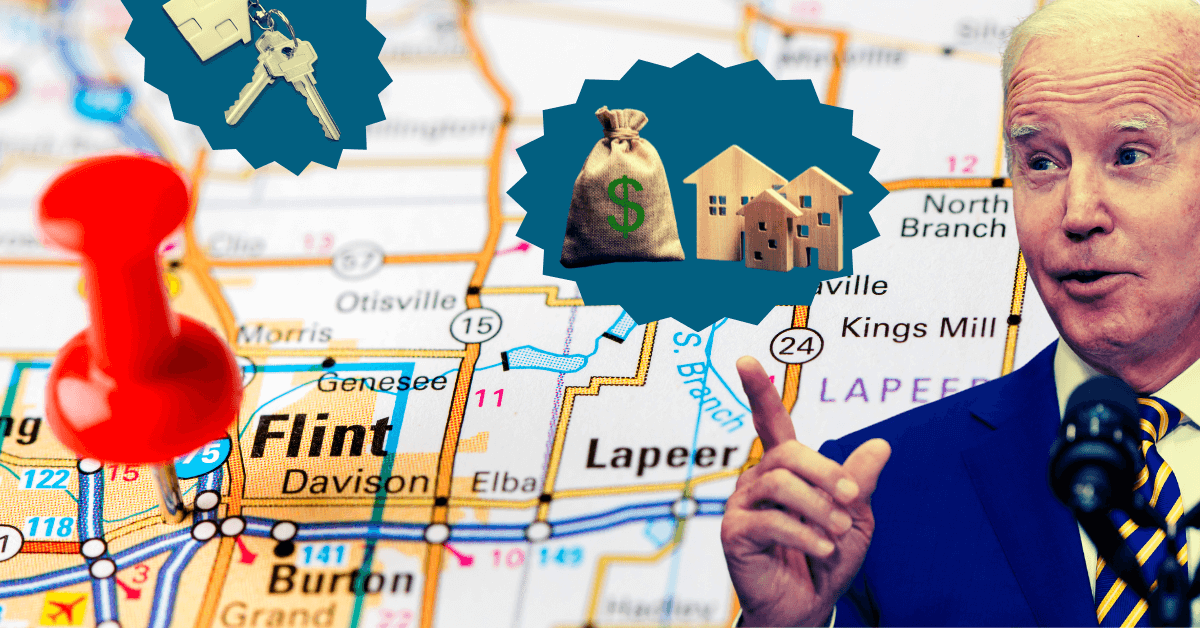
Photo Illustration/Getty Images/John Nacion/WireImage
About $250 million in federal tax credits awarded through Gov. Gretchen Whitmer’s administration will help support 22 affordable housing projects in 14 Michigan communities.
MICHIGAN—Gov. Gretchen Whitmer announced a series of federal tax credits this month to help developers build or rehabilitate more than 1,000 affordable rental homes across Michigan, all with the goal of expanding the state’s housing supply and driving down costs for families.
“This year, we are working together to make the largest investment to build housing in Michigan history,” Whitmer said in a statement last week. “Housing is about much more than a roof over your head. It’s the foundation for success at school, work, and in the community.”
The federal Low-Income Housing Tax Credits announced this month are administered through the Michigan State Housing Development Authority. All told, about $250 million in tax credits are set to support the new construction and rehabilitation of 22 housing projects in 14 communities.
According to Whitmer’s office, those tax credits will go on to spur on more than $300 million in investments across Michigan—creating more than 1,000 new affordable rental homes for working class families and supporting over 1,500 “good-paying” construction-related jobs.
In a statement, Tony Lentysch, chief housing investment officer at the state Housing Development Authority, said the tax credits will “drive our state forward toward another record-setting year in the construction and rehabilitation of new homes for Michiganders.”
“We will continue moving quickly with solutions, but we can’t do it alone,” Lentysch said. “We’re grateful to our partners in development and construction for making these deals happen.”
How does it work?
Low Income Housing Tax Credits are federal tax credits administered through the state that are specifically intended to increase and preserve affordable rental housing—namely by providing developers with a tax credit that’s applicable against their annual tax liability for up to 10 years.
In exchange, the owner must agree to keep the property as both rent- and income-restricted for at least 18 years. At a minimum, the owner must also ensure that 1.) either 20% of the units must be for residents whose incomes do not exceed 50% of the area median income or 2.) 40% of the units must be for those whose incomes do not exceed 60% of the area median income.
Where are they going?
The credits announced this week range from $175,000 to $1.65 million, and were awarded to a wide range of projects in Battle Creek, Clare, Detroit, Flint, Escanaba, Gladwin, Kalamazoo, Marysville, Muskegon, Owosso, Pinconning, Traverse City, Whitehall, and Wyoming.
State Rep. Cynthia Neeley (D-Flint) said the credits will “liven up” the historic Marian Hall, creating 43 new units that will “become cozy homes for those who need them.” And in Detroit, a credit for Elmtree Ewald 3 will also help ensure more local residents can find affordable housing.
“Investments in housing are investments in a community’s heart and soul,” state Rep. Helena Scott (D-Detroit) said in a statement. “Affordable housing isn’t just about roofs; it’s about stability, opportunity and dignity. I’m proud to support efforts that make Detroit stronger.”
State Rep. Betsy Coffia (D-Traverse City) also said the tax credits will help quell an affordable housing shortage Up North—including for a new supportive housing project in Traverse City.
“All across our region in Northern Michigan, there is a lack of affordable housing, which has wide-ranging impacts on our local workforce and economy,” Coffia said in a statement. “That’s why expanding our affordable housing stock has been one of my top priorities while in office.”
And on the west side of the state, lawmakers like state Reps. John Fitzgerald (D-Wyoming) and Will Snyder (D-Muskegon) also celebrated the newly announced tax credits for affordable housing as “critical to the growth and overall success” of their local communities.
“People all across the state deserve affordable housing; they deserve options; they deserve pathways to ownership; and more,” Snyder said in a statement. “These grants will create good-paying jobs, help seniors live independently and help people afford their own place.”
Want more specifics?
Here’s the full list of the tax credit recipients, as provided by Whitmer’s office:
- Allen Crossing in Muskegon received $1.47 million.
- Blue Light in Battle Creek received $1.65 million.
- Brewster Wheeler in Detroit received $1.49 million.
- Brewster Wheeler II in Detroit received $1.49 million.
- Brewster Wheeler III in Detroit received $1.49 million.
- The Bridge II in Detroit received $1.65 million.
- Bridgeview III in Detroit received $235,000.
- Clarendon Glen in Clare received $264,000.
- East Bay Flats in Traverse City received $788,000.
- Elmtree Ewald 3 in Detroit received $700,000.
- Jefferson Avenue in Detroit received $1.65 million.
- Kalrecovery in Kalamazoo received $1.2 million.
- Lofts of Muskegon in Muskegon received $1.65 million.
- Marian Hall in Flint received $1.67 million.
- Meadowbrook Apartments in Escanaba received $366,000.
- Riverview Flats in Owosso received $1.5 million.
- Shea Ravines in Wyoming received $1.65 million.
- Village North II in Gladwin received $785,000.
- VOA St. Mary in Detroit received $1.65 million.
- West Shore Apartments in Whitehall received $559,000.
- Whispering Pines II Apartments in Pinconning received $170,000.
- Wills Manor in Marysville received $1.49 million.
VIDEO: Whitmer talks ‘game changing’ affordable housing plan
For the latest Michigan news, follow The ‘Gander on Twitter.
Follow Political Correspondent Kyle Kaminski here.
Politics

Elissa Slotkin: Not even birth control access will be safe if Trump wins in 2024
Michiganders may think their reproductive rights are safe, but Trump and Republicans are already plotting their next steps to take away access in...

Why you should care about this year’s Michigan Supreme Court election
Michiganders will soon decide who serves on the highest court in the state—and those two justices will have a hand in making some important...

Dozens march to Flint city hall as the water crisis turns 10 years old
BY KEN COLEMAN, MICHIGAN ADVANCE MICHIGAN—Chanting “Clean water is what we demand,” “Water is a right” and “No justice, no peace,” dozens of people...
Local News

Who makes the best cannabis concentrates in Michigan?
Over the last year, we've asked for reader recommendations for the best dispensaries in Michigan and the best weed, best edibles and best vapes you...

7 quick hits of cannabis news from across Michigan
MICHIGAN—Cannabis is a big deal in Michigan—and there’s never a shortage of newsworthy headlines from the industry as the state inches closer to...




